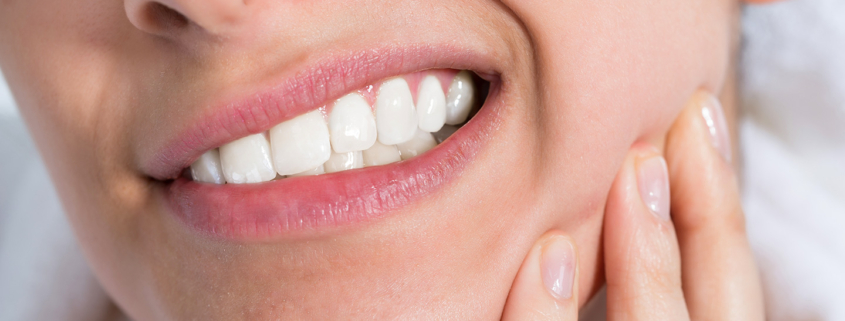Easing the Ache: Tooth Sensitivity
It’s a sunny summer afternoon and you decide to treat yourself to a delicious gelato to help beat the heat. You finally step outside and within seconds of that gelato touching your teeth, you feel a sharp pain strike your tooth. After a few moments of recovery, you think to yourself “Why was that so painful and why did it disappear so quickly?” The answer: Tooth Sensitivity. So what is tooth sensitivity, why does it happen and what can you do to prevent it? Let’s dive into it!
What is tooth sensitivity?
Simply put, tooth sensitivity is pain or discomfort in one or more teeth and is caused when doing certain activities or consuming certain types of food. It is a prevalent issue that affects most people at some point in their lives. While the pain is usually temporary, it remains quite discomforting as the pain tends to be sharp, halting you in the moment. Sound like something to completely avoid right? Well, let’s jump to how we can prevent it from happening. To truly understand how to prevent tooth sensitivity, we need to do a quick anatomy lesson!
We’ll start with the tooth, which is a resistant structure made of multiple layers of both hard and soft tissues. The outer layer of the tooth is called enamel. It is a hard substance and covers the tooth, protecting the softer inner layer. Underneath the enamel is dentin, which protects the soft, nerve-filled tubules. This is where tooth sensitivity comes into play. Once the enamel wears down, dentin is exposed to everything that enters your mouth, causing pain.
At this point, you are one of two people. You are reading this because you have tooth sensitivity or are looking to prevent it from happening, so let us help you!
How to Prevent Tooth Sensitivity:
- Use a Soft-Bristled Toothbrush: A soft-bristled toothbrush can help prevent enamel wear and gum recession. Be gentle when brushing your teeth.
- Choose the Right Toothpaste: Use toothpaste formulated for sensitive teeth, which can help block the transmission of sensations from the tooth surface to the nerve. Using a fluoride toothpaste can also assist.
- Limit Acidic Foods and Drinks: Acidic foods and beverages can erode enamel. Try to reduce your intake of citrus fruits, soda, wine, and other acidic items.
What to Do If You Have Tooth Sensitivity
- Visit Your Dentist: A dental professional can diagnose the cause of your sensitivity and recommend appropriate treatments. These might include fluoride treatments, dental bonding, or a protective covering for the exposed dentin.
- Avoid Trigger Foods and Drinks: Identify and avoid foods and beverages that trigger your sensitivity.
- Maintain Good Oral Hygiene: Regular brushing and flossing can prevent further enamel erosion and gum recession
Tooth sensitivity can be a bothersome condition, but it is manageable with the right care and preventive measures. By understanding the causes and taking proactive steps to protect your teeth, you can reduce your risk of sensitivity and maintain a healthy, pain-free smile. If you are experiencing persistent or severe tooth sensitivity, be sure to consult your dentist for a more comprehensive evaluation and personalized treatment plan.
Thank you for reading! We hope that this post has educated you or assisted with any questions you may have had. If you found this post helpful but still have some more questions, please don’t hesitate to ask! Feel free to reach out to us here at Mellow Family Dental Care at [email protected] or send us a message at @mellowfamilydental on Instagram and Facebook.



